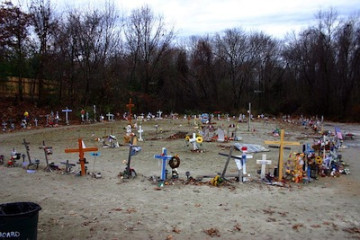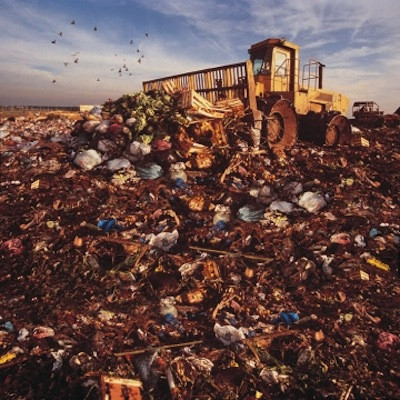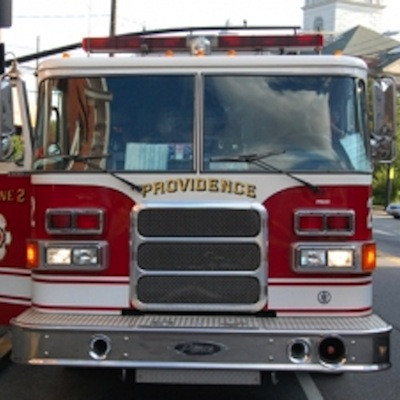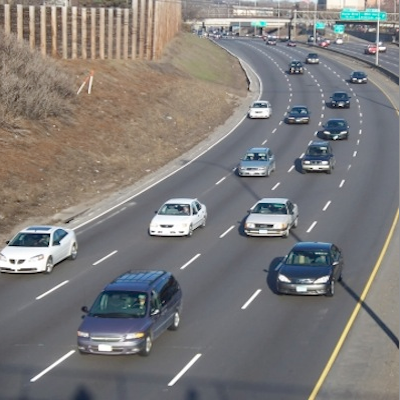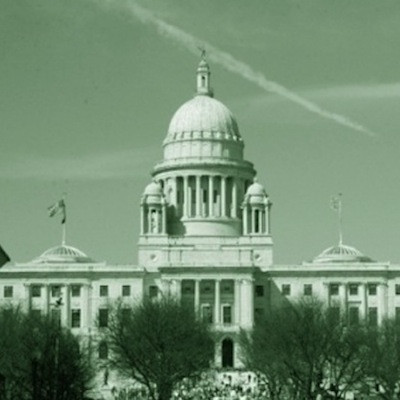Station Fire Victim’s Dad: “Draconian Laws Impossible to Afford”
Wednesday, February 19, 2014
Outspoken fire safety advocate Dave Kane defines the state's reaction to the Station Nightclub fire as Draconian, overpriced, and misguided.
His stance contrasts with prevailing sentiment from local fire and government officials, such as former Warwick Fire Captain Peter Ginaitt. At a memorial service last Sunday honoring the 100 victims of the Feb. 20, 2003 fire, Ginaitt said Rhode Island learned a hard lesson and is safer for it. Ginaitt, a first responder on the scene 11 year ago, is a Warwick Democrat – a 15-year State Rep. – who served as co-chairman of the House Oversight Commission to Study the Ramifications of the Fire Safety Code. Kane agrees that the state is safer, but he believes safety is as much about accountability as it is about sprinklers and fire extinguishers.
"I'm not sure I agree with the reasons he gave. He was saying there are more sprinklers and et cetera. That wasn't what we needed to do. We didn't need any of the new laws. We needed instead to make sure the safety officials are doing their jobs," Kane said.
GET THE LATEST BREAKING NEWS HERE -- SIGN UP FOR GOLOCAL FREE DAILY EBLASTKane's son, 18-year-old Nicholas O'Neill, was the youngest victim of the fire. Kane has since become a proponent of fire safety awareness and the enforcement of strict laws for the administration of fire safety inspections on public buildings. He publicly opposed former Attorney General Patrick C. Lynch's handling of the criminal investigations after the fire, and believes the laws since put in place were reactionary and crippling to small businesses.
"We passed the most Draconian fire laws in the history of the world. People went out of business. Small businesses who were completely fine were ordered to spend thousands of dollars. Churches were forced to close. We passed all of these codes that were next to impossible to afford. It didn't accomplish what it was meant to accomplish and we didn't need to do it," Kane said.
According to Kane, the original building capacity for the Station Nightclub building was 60 people. It was eventually raised to over 400 people. He blames public officials and the owners in the "good old boys" network for allowing the club to operate at that capacity.
"They intentionally lied about the capacity at that club. We're talking about people who helped each other out illegally. Period. The new laws are nice but if we had just enforced the law then 400 people wouldn't have been in a club that was built for 60."
Local filmmaker David Bettencourt turned his attention to the Station nightclub fire three years ago, with encouragement from friend and survivor Missy Minor Martone.
"One of the things I learned from my research and from the many interviews we did with fire officials, investigators, witnesses, and survivors from the web series was that the fire code in Rhode Island at the time was actually really solid, but it just didn't have any 'teeth," Bettencourt said.
"When I talked to officials from the RI Fire Code Safety Review board, they basically told me that the code, as it was written, was strict enough but just wasn't enforced: fines were ridiculously low for violations and often inspectors didn't follow up on changes that they wanted to see in nightclubs. A lot of places were allowed to be 'grandfathered' in."
The cost and the codes
"Just days after the Station Fire – which was also just days after that stampede in a nightclub in Chicago – there were sweeping changes and tough new code provisions regarding nightclub safety, fire sprinkler codes, and crowd management. And inspectors had 'teeth' behind them. There were heavy fines and multiple inspections. No messing around," Bettencourt said.
After the fire, then Governor Donald Carcieri gave orders to make Rhode Island the safest state in the nation by punching up the state’s fire prevention code.
"Carcieri wanted the safest state and the best fire codes in the country," said former Chief Fire Marshall Frank Sylvester, currently chief of the Lime Rock Fire District in Lincoln.
A tougher code was implemented in 2004. It repealed the “grandfather clause” that exempted older buildings from adopting modern sprinklers and wired alarm systems. Today, every Rhode Island nightclub with a crowd capacity of 150 or more must have a sprinkler system. Although nightclubs under 150 capacity are exempt, they must meet other fire-prevention requirements, such as having a fire alarm system that shuts off speakers and turns up lights when activated. Doorway and exit sign regulations have also been tightened. The code also requires that audiences be informed of exit signs and evacuations prior to performances.
Gathering spaces such as schools, churches, warehouses, restaurants, and banquet halls were included in the same regulations as night clubs. Facing unexpected and costly upgrades to their property, some owners sought help from the General Assembly. Certain codes were relaxed for churches and schools, as well as low risk business sectors. In response to cost complaints, options were offered for alternative wiring methods and sprinklers or alarms were allowed to be placed strategically as opposed to throughout entire buildings.
"The intent of putting these codes in was never to put anybody out of business. We don't want this to happen again. That was our main goal," Sylvester said.
"I'm the type of guy who believes the first thing is public safety, the second is business friendly."
The penalties and the price
State officials now have random spot checks and costly penalties at their fingertips. Club owners may be fined $250 for the first offense, $500 for a second and $1,000 for a third offense, along with an appearance before a judge. Proponents say this finally gives teeth to the fire codes, but there may not be enough sharks in the water.
"They're overworked at the State Fire Marshall's office now as far as the job they have to do for what they have for staff. They go out and do an awful lot of inspections," Sylvester said.
While property owners that could not or would not come up to code faced fines, the owners who followed the rules faced big bills. Many property owners spent $50,000 to $100,000 to get up to code, such as the American Legion Post 10 in Riverside.
"The American Legion was hit hard when it had to put in a bunch of fire suppression [improvements]. They spent in excess of fifty thousand dollars," said Chrissy Rossi, Ward 4 East Providence City Councilwoman.
Rossi said the Legion, which is in her Ward, faced the same financial struggle as the local Elks Clubs and Knights of Columbus.
"I think what happened at the Station was a horrible tragedy. I had been there myself. The floor was a matchbox soaked in alcohol. But the [revised] codes we're probably just a knee jerk reaction and it cost a lot of companies. A lot of them went out of business when they couldn't come up with that kind of money. I'm sure we are the epitome of safety now. But I think they probably could have done it better. I don't think anyone needed to go this far over the top."
One of the most famous businesses to pull out of state after the new codes were introduced is Lombardi's 1025 Club. The Johnston-based club was a Rhode Island banquet institution before owner Steve Lombardi closed the doors because of the cost of compliance.
On the other end of the financial spectrum is Twin River in Lincoln.
"Twin River has spent in excess of $2.5 million in its sprinkler, fire system," said spokeswoman Patricia Doyle.
"This includes thousands of sprinklers."
When asked for a dollar amount local businesses have paid to stay current on fire regulations, East Providence Chamber of Commerce Executive Director Laura McNamara said "I've never seen it quantified. I don't know the average cost because it varies depending on the size of the building. It's definitely a burden for smaller businesses."
The victims
The Station Nightclub fire is the fourth-worst nightclub fire in U.S. history, the eighth-worst fire in America in some 85 years. 100 people were killed, 230 injured. Only one-third of the crowd, 132 people, escaped without injury. The historic tragedy prompted John Barylick, a Providence-based lawyer, to write the book "Killer Show: The Station Nightclub Fire, America’s Deadliest Rock Concert."
"My need to write about the Station nightclub fire, and its human and legal aftermath, became apparent when the criminal and civil cases arising from the tragedy resolved without trials, leaving many questions unanswered. Having worked on the civil cases for seven years, I knew that most of the answers lay 'hidden in plain sight' in public records; however, the sheer volume of those records made marshaling the evidence a daunting task," Barylick said.
"My goal was to organize that surfeit of information into a comprehensible and, hopefully, engaging narrative. My broader goal was to chronicle the folly and greed that led to the horrific Station Fire."
Attorney Mark Mandell of Mandell, Schwartz & Boisclair was appointed to serve as Co-Chairman of the Plaintiffs Steering Committee in the Station Fire litigation – a suit against 97 defendants. The firm said they pursued justice for their clients for seven years. The litigation resulted in a recovery of over $176,000,000 on behalf of the victims and families affected by the fire.
"All of these people didn't die so that a lot of other people could make money selling fire extinguishers. They didn't die so that a fireman or policeman could be hired for extra duty at a dance recital," Kane said.
"We didn't need these laws. What we needed was somebody who would enforce the laws we had."
Related Slideshow: The 15 Costliest Government Programs in RI
Related Articles
- LISTEN: Fire Districts Break Property Tax Cap
- NEW: RI to Receieve Nearly $7 Million to Enhance Public Safety
- National Grid, Fire Officials Urge For Safety in Snow Removal
- PODCAST: $22M in Public Safety OT since 2010
- Prov Firefighter Earns Over $200K, Mayoral Candidates Speak Out
- PODCAST: Is Our Public Safety Being Threatened?
- Prov. Firefighter’s $200K Sparks Calls for Reform; OT in Millions
- Providence Budget Woes: Public Safety Chaos
- Providence Council Releases Report on Nightclub Safety
- PODCAST: Prov. Firefighter’s $200K Pay Sparks Calls for Reform
- State Report: E-Licensing, Lawmakers Address Autism + Gun Safety
- Barrington Firefighter Shows Artistic Side On Providence Mural
- The Scoop: Fmr. Fire Chief Eyeing Solomon’s Council Seat; More
- RI State Report: Drunk Driving, School Safety, and Synthetic Drugs
- Fire Damages PC Coach’s House
- Travis Rowley: Hose the Firefighters
- INVESTIGATION: Fire Districts Break Property Tax Cap
- NEW: RI to Receive Nearly $7 Million to Enhance Public Safety




